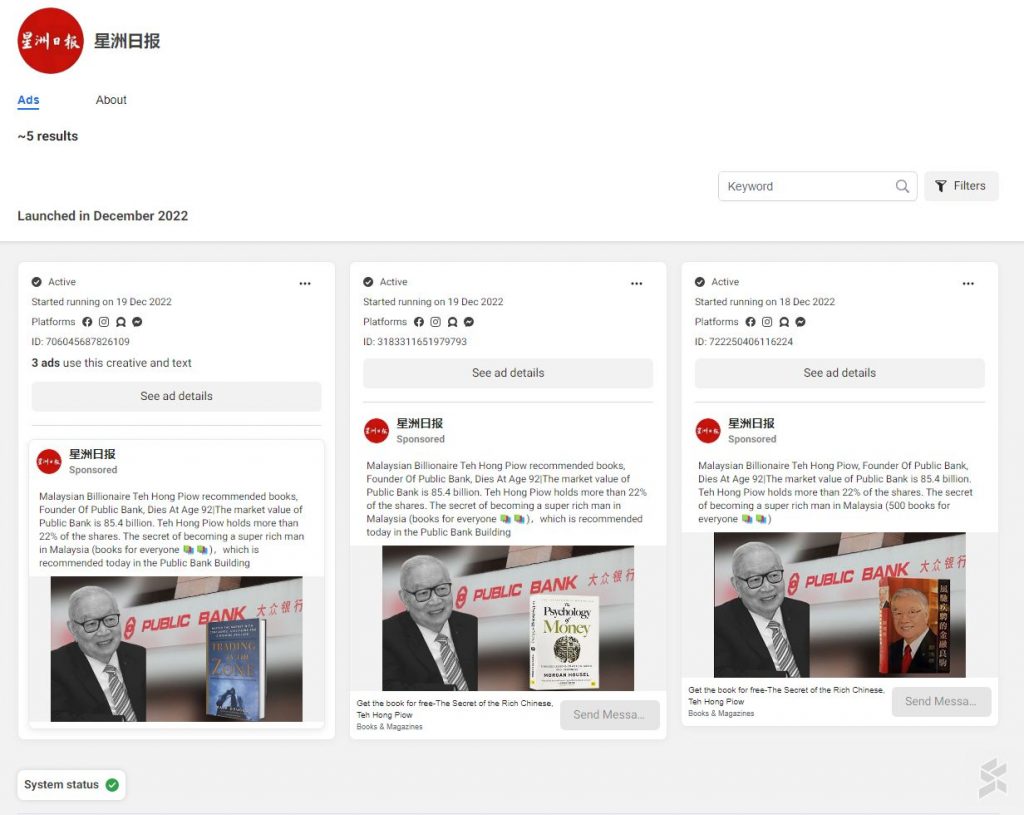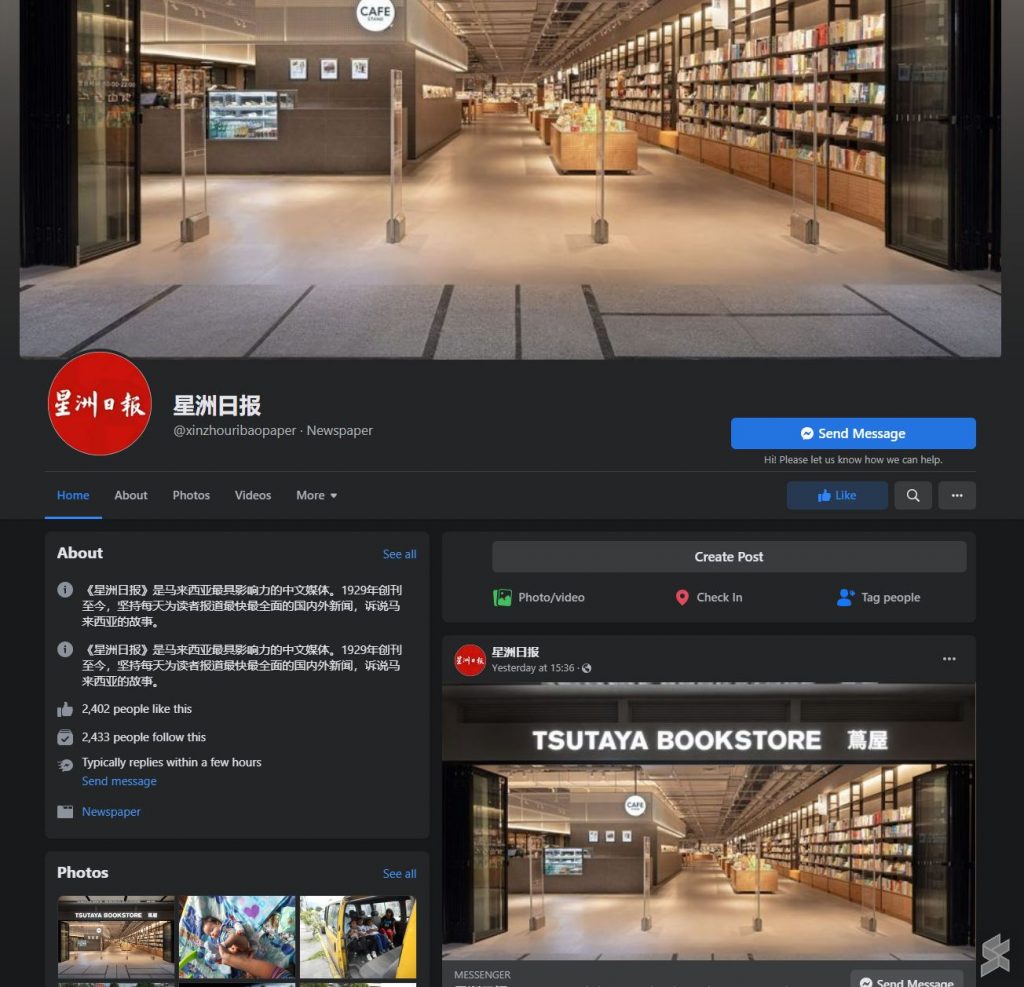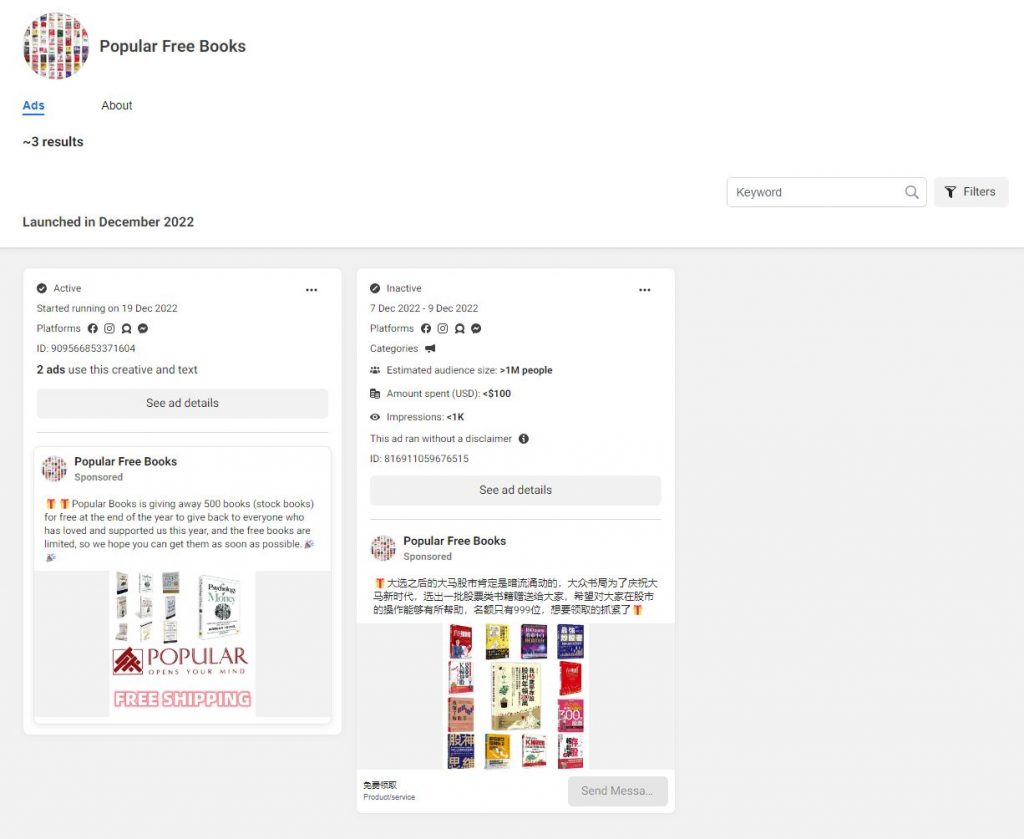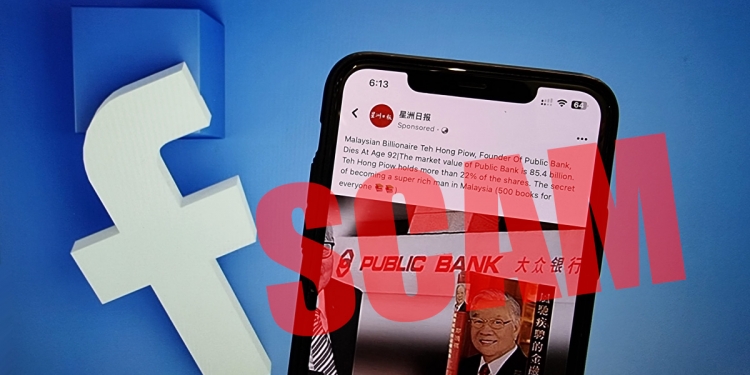Meta appears to have no regard for user safety as it continues to approve Facebook scam ads that impersonate popular brands and public figures in Malaysia. This comes after Kinokuniya Malaysia warned about scam ads on Facebook using their brand to offer “free books” on investment and financial management.

The latest victim of such scam ads is Sin Chew Daily as a fake Facebook page was spotted running ads offering free books of the late founder of Public Bank, Tan Sri Teh Hong Piow. The ad directs to Facebook Messenger which then provides a link to WhatsApp to continue the conversation. Obviously, this is a scam. If you see such ads, you are urged not to interact with it and report it on the platform.

If you look at the page, you’ll notice that it is a fake unverified page with 2,402 likes that uses Sin Chew Daily’s logo but with Tsutaya Bookstore as the cover photo. The page was created in September 2011 under a different name before it was changed to Sin Chew Daily on 8th December 2022. At the time of writing, the page is running three ads which started on 18th December 2022.

Besides this page, we also spotted another scam ad claiming that Popular bookstore is offering 500 books for free. It uses the same tactic of directing users to Facebook messenger.

As reported repeatedly, Facebook is a cesspool of scams and it approves fake ads without performing basic checks. With advertising as Meta’s main revenue generator, it is their responsibility to ensure ads are safe and comply with their own ad policies. Even with user reports about a scam ad, it takes days or weeks before any action is taken. Such ads can cause financial losses to victims while Meta continues to make money from active ads that run on its platform.

Making social media platforms responsible for scam ads is one of our top 5 wishlist for the new Communications and Digital Minister to fix. Meta should be required to form a local ad review and moderation team to approve ads targeting Malaysian users and there’s a mandatory turnaround time to remove scam ads after it was reported by users.
In Australia, the competition and consumer commission had taken legal action against Meta for publishing scam celebrity crypto ads on Facebook. They found that their conduct was in breach of the Australian Consumer Law (ACL) and the Australian Securities and Investments Commission Act (ASIC Act).
Related reading
- Kinokuniya Malaysia warns of fake Facebook pages scamming users with “free books”
- 5 things Fahmi Fadzil needs to fix as Digital Communications Minister
- Facebook pages have been impersonating an influential Malaysian doctor to scam people
- It’s time for Malaysia to penalise Facebook for allowing scam ads
- Facebook still allows scammers to run fake ads targetting Malaysians
- Facebook is a cesspool of scams. Here’s what Annuar Musa should do to keep big tech in check







